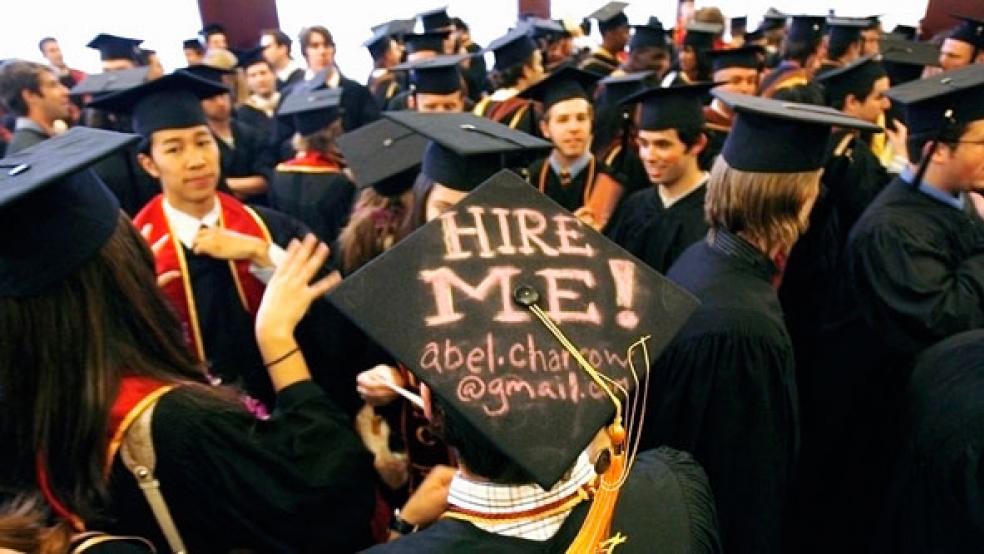Congratulations class of 2013! Welcome to the real world, where unemployment is high and wages are low.
For the fifth year in a row, high unemployment rates and depressed wages await college grads, who are leaving campus, on average, with $26,000 in student loan debt, according to a new analysis by the Economic Policy Institute.
RELATED: 11 Public Universities With the Worst Graduation Rates

Many students go to college with the idea that “they will be able to get a high quality job to pay off their student debt, but that idea is broken at a time like this,” EPI economist and co-author of the report, Heidi Shierholz said.
Currently, the unemployment rate among young college grads is 8.8 percent. That’s down from 10.4 percent in 2010, but still much higher than the pre-recession level of 5.7 percent in 2007. To make matters worse, many of the college grads that do score full-time jobs are earning less than they would in a healthy job market. According to the EPI, college grads are earning about $3,200 less a year than they were in 2000. Their pay fell by 7.6 percent in the last six years alone.
Shierholz said this could create long-term problems since it will likely take them more than a decade to “catch up and get back to the trajectory they would have been on in a healthy market.” And even if they do catch up, they will never make up the earnings they lost along the way.
On top of this, many grads are taking jobs that don’t even require a college degree. According to a study done by Andrew Sum, Northeastern University economist, more than 52 percent of college grads under the age of 25 are working at a job that does not require a college degree. That’s up from 47 percent in 2007. One year ago, of the 1.5 million graduates who are underemployed, the AP reported, "In the last year, they were more likely to be employed as waiters, waitresses, bartenders and food-service helpers than as engineers, physicists, chemists and mathematicians combined (100,000 versus 90,000). There were more working in office-related jobs such as receptionist or payroll clerk than in all computer professional jobs (163,000 versus 100,000). More also were employed as cashiers, retail clerks and customer representatives than engineers (125,000 versus 80,000)."
Still, college grads are unsurprisingly faring better than those wielding only a high school diploma.
The unemployment rate for high school graduates who are not seeking higher education is at a whopping 29.9 percent, that’s up from 17.5 percent in 2007. Moreover, those with only a high school diploma experienced a 12.7 percent decline in earnings between 2000 and 2012, or a loss of roughly $2,900 in wages, according to EPI.


